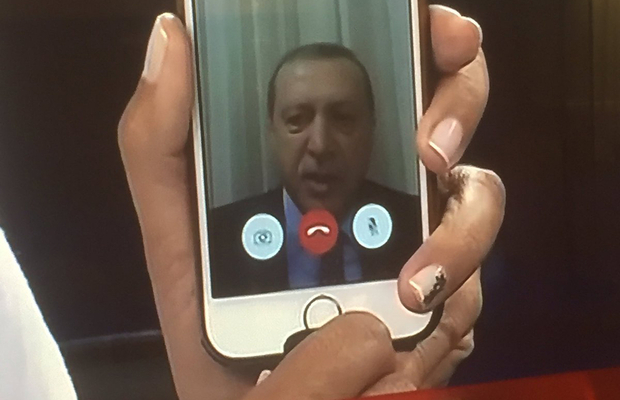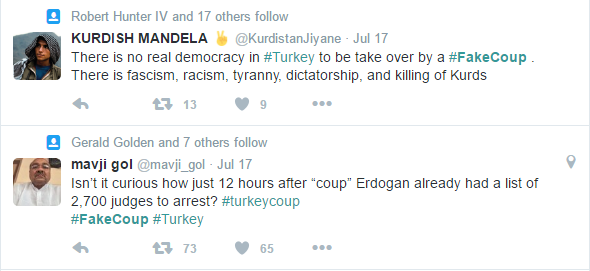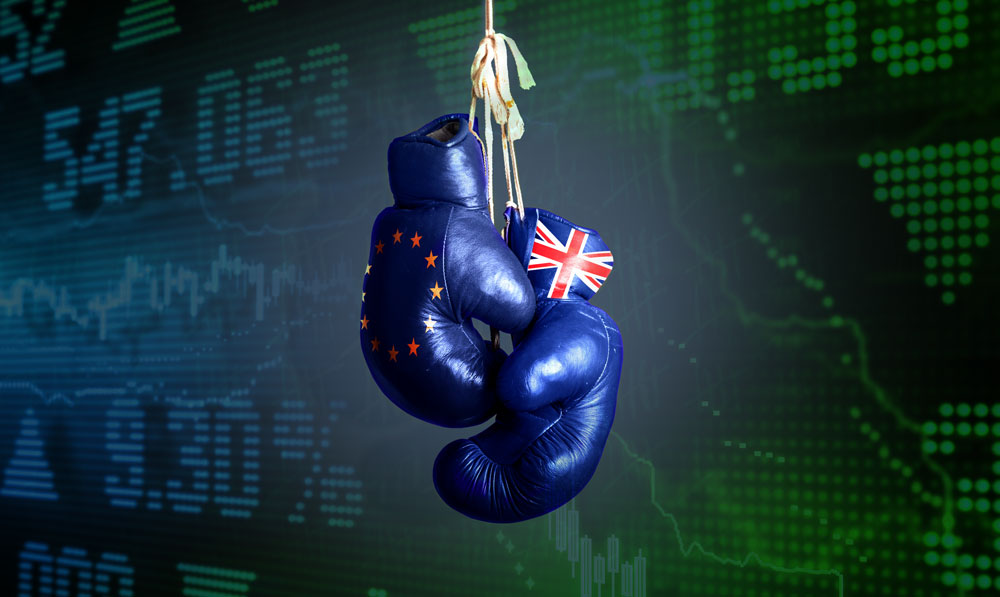
Social Media Plays Important Role in Erdogan’s Response to Failed Coup Attempt
May I just start by saying #Ironic or should I say #Hypocrisy ?
Turkish President Recep Tayyip Erdogan used social media to his advantage over the weekend by cleverly getting himself on CNN Turk via FaceTime. After spending years fighting social media for reporting the corruption of his inner circle, the Turkish leader proved that technology was not just a tool of democracy. In a country that is being pushed into the throes of authoritarianism, social media can also be a powerful tool of manipulation and propaganda.

By the time Erdogan got his message across, it was already too late for the military faction, which called itself the Peace at Home Council. Although the junta would eventually seize control of CNN Turk, Erdogan’s supporters had already flooded the streets. It would only be a matter of time before the crackdown began.
In the hours after Erdogan’s intimate FaceTime interview, the brutality of the failed coup was caught on smartphones across Istanbul and Ankara. Brutal pictures quickly spread through the Twittersphere, while shaky videos were uploaded hastily to YouTube to give the world a first-hand glimpse of the chaos that was unfolding.
By last count, the failed takeover resulted in at least 290 deaths and mass arrests consisting of at least 6,000 people, including 2,839 soldiers and 2,745 judges.
The clampdown that followed the failed takeover is likely a sign of things to come. With Erdogan already calling for reinstating the death penalty for treason, it appears that the complete centralization of a once developing democracy is beginning to take root. Erdogan had previously attempted to amend the constitution in order to give himself more power, and this likely gives him the scope to accelerate those efforts.
All of this plays into the hands of Erdogan a little too easily, according to Turkish cleric Fethullah Gulen, who lives in self-imposed exile in the United States. According to the preacher, the coup may have been “staged” by Erdogan’s stooges. In fact many of the attempted coup facts would seem to be fabricated
Interestingly enough, Erdogan accused Gulen of being behind the attempted coup and has made a formal request for the imam’s extradition.
“I have no concerns personally,” Gulen said in response to Erdogan’s extradition request.
“I don’t believe that the world believe the accusations made by President Erdogan. There is a possibility that it could be a staged coup and it could be meant for further accusations [against Gulen and his followers].”
According to the US State Department, Erdogan’s response to this weekend’s chaos could determine the future of Turkey’s NATO membership. Even the European Union has warned the Turkish President that any attempt to reinstate the death penalty would ensure Turkey doesn’t become part of the EU.
All eyes are on Turkey and Erdogan in the wake of this weekend’s shocking news. Only time will tell whether democratic forces prevail or whether Erdogan tightens his grip on the republic. Meanwhile whilst Twitter may be intermittently blocked in Turkey, in the rest of the world the Twittersphere is hot with the hashtag #FakeCoup

Do you think social media should ever be blocked? Tweet me @Charli_Says and let me know
Sources
Jevin Rawlinson (March 21, 2014). “Turkey blocks use of Twitter after prime minister attacks social media site.” The Guardian.
Edi Finn (July 18, 2016). “Power of social media; Erdogan’s smart use of a smartphone.” CNN.
New Telegraph (July 16, 2016). “Failed Coup: Turkey Arrests 2,839 Soldiers, Sachs 2,745 Judges.”
AFP (July 19, 2016). “Erdogan foe Gulen dismisses Turkey extradition bid.” Mail Online.
Amana Fontanella-Khan (July 16, 2016). “Fethullah Gulen: Turkey coup may have been ‘staged’ by Erdogan regime.” The Guardian.


